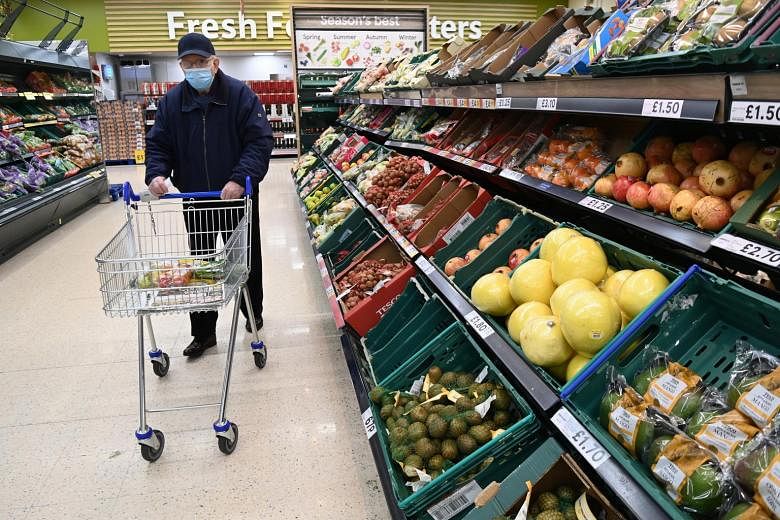LONDON/BRUSSELS (REUTERS, AFP) - British shoppers worried about the government failing to secure a post-Brexit trade deal with the European Union should not stockpile food, Business Secretary Alok Sharma said on Monday (Dec 14).
Britain and the EU agreed on Sunday to "go the extra mile" in coming days to try to reach an elusive trade agreement despite missing their latest deadline to avert a turbulent exit at the end of the month.
Mr Sharma said he was confident food supplies would be maintained even if Britain leaves the bloc without a trade deal.
"I'm very confident that actually the supply chains will still be in place," he told Sky News.
"I would say to everyone - do your normal shopping as you would do and I think we'll find we're going to be absolutely fine," he said.
Britons stocked up on long-life goods in March as the country entered a Covid-19 national lockdown, stripping some shelves bare and forcing many people to queue for hours or drive further than normal to find goods such as toilet roll, tinned tomatoes and rice.
The British Retail Consortium said on Sunday that retailers were doing everything they could to prepare for all eventualities on Jan 1 - increasing their stocks of tins, toilet rolls and other longer life products so there would be sufficient supply of essential products.
It also said there was no need for the public to buy more food than usual as the main impact would be on imported fresh produce, such as fresh fruit and vegetables, which cannot be stored for long periods by either retailers or consumers.
The British Retail Consortium has warned of higher prices without a trade deal.
Tesco, Britain's biggest supermarket group, has said consumers should expect price increases of between 3 per cent and 5 per cent.
However, Mr Sharma said the impact would be less.
"I think we are talking less than 2 per cent in terms of a potential impact, obviously there will be certain products where it may be a little bit more," he told BBC television.
Mr Sharma said the estranged allies were still apart in Brexit trade talks but Prime Minister Boris Johnson did not want to walk away yet.
"We are of course apart on certain matters but... we don't want to walk away from these talks," Mr Sharma told Sky News. "People expect us, businesses expect us in the UK to go the extra mile and that's precisely what we're doing."
He said: "Any deal that we get with the EU has to respect the fact that we are a sovereign country, an independent country and that's the basis on which we will do a deal if there is a deal to be done."
The EU's Brexit negotiator, Mr Michel Barnier, said on Monday that sealing a new trade pact with Britain was still possible as negotiators sought to break deadlocks on access to UK fishing waters for EU vessels and corporate economic fair play rules.
"We are going to give every chance to this agreement...which is still possible," Mr Barnier told journalists on arriving to update envoys from the 27 EU countries in Brussels on the UK talks. "A good, balanced agreement."
He added: "Two conditions aren't met yet. Free and fair competition... and an agreement which guarantees reciprocal access to markets and waters. And it's on these points that we haven't found the right balance with the British. So we keep working."

